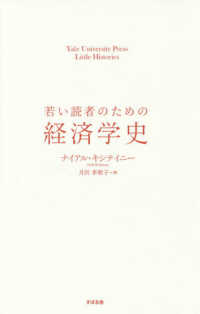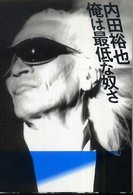- ホーム
- > 洋書
- > 英文書
- > Philosophy
Full Description
Henrique Schneider argues that understanding the three Early Confucian thinkers—Confucius, Mencius, and Xunzi—as virtue-ethicists, political philosophers, or social conservatives proves too narrow. Championing a broader and more philosophical reading, The Early Confucian Philosophy of Agency: Virtuous Conduct sheds new light on a well-established topic. Virtuous conduct—aligning actions and motivations with virtues, social roles, and rituals—is the philosophy of agency of Early Confucianism. Confucius, Mencius, and Xunzi share a common philosophy of agency, which does more than describe agents and acts: it also represents a progressive social and political program. Schneider characterizes Early Confucianism as a progressive philosophy due to its human-centered program for social reform, its process view of self-cultivation, and its development. Agents who cultivate themselves can produce virtuous conduct, flourish, and become Junzi. This lets them lead each other in self-cultivation, social environment, and polity. As such, virtuous conduct integrates ethics, social and political philosophy in a theory of action.
Contents
Acknowledgments
Introduction: Conceptions of Confucianism
Chapter 1: Virtues
Chapter 2: Roles
Chapter 3: Rituals
Chapter 4: Human Nature, Self-Cultivation, and Flourishing
Chapter 5: Junzi: Self-interest and Leadership
Conclusion: Confucianism as "Progressive" Philosophy
Appendix 1: Virtue, a Contested Idea
Appendix 2: Alternatives to Virtues
Bibliography
About the Author







